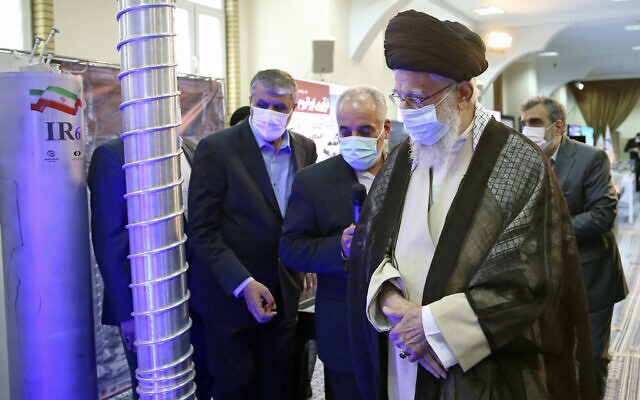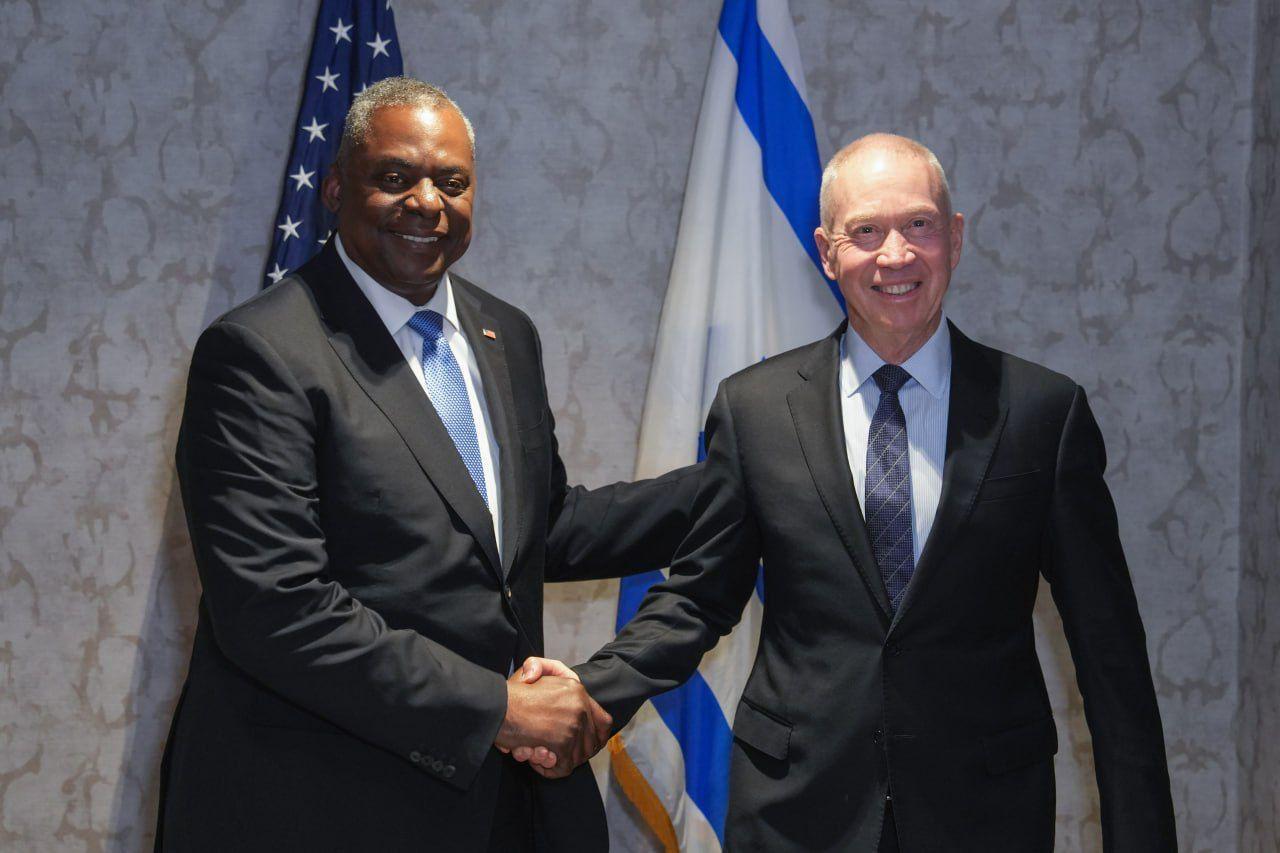US said to reassure Israel on security amid reports of emerging interim Iran deal
Washington reportedly says Jerusalem will maintain military edge and free hand to act against adversaries in the Middle East

As Washington appears to be nearing an interim nuclear agreement with Tehran, the US has assured Israel that it will maintain its security edge and freedom to act against Iran, according to a report Friday.
Some of the understandings between Israel and the US regarding the emerging Iran agreement were worked out during a Thursday meeting between US Defense Secretary Lloyd Austin and Defense Minister Yoav Gallant, Channel 12 news reported.
A senior security official told the network that cooperation had increased between Israel and the US on the issue of Iran, and that the joint work involved security officials and the Israel Defense Forces.
Israel has received a guarantee that it will maintain its qualitative military edge in the Middle East, a longtime commitment the US has made to the Jewish state, the report said.
Austin also made clear to Gallant that even if the US and Israel are closely cooperating on the Iran issue, Israel will maintain a free hand to act against its adversaries.
Gallant met with Austin on the sidelines of a NATO defense ministers gathering in Brussels and agreed to work together to “address the wide range of threats posed by Iran,” according to a readout from the US Department of Defense.
After the series of reports about a prospective deal, US Secretary of State Antony Blinken sought to tamp down speculation on Friday.
“With regard to Iran, some of the reports that we’ve seen about an agreement on nuclear matters or, for that matter, on detainees, are simply not accurate and not true,” Blinken said when asked about indirect talks via Oman.
On Monday, Iran said it was conducting indirect negotiations with the United States through the Sultanate of Oman, with nuclear issues, US sanctions and detainees on the menu.
There have been multiple reports indicating the deal is moving forward and that Israel will accept the general parameters of the potential agreement, however.
In a report this week, Haaretz said that the US had been updating Israel on the emerging understandings and that Jerusalem was not trying to foil the talks.

The comments echoed similar remarks from Israel’s Ambassador to the US Michael Herzog.
“Diplomacy isn’t necessarily a bad thing,” Herzog said during an event hosted by the Democratic Majority For Israel, according to Haaretz.
“As far as we’re concerned, diplomacy in and of itself, and such understandings, are not necessarily bad to the extent that they can help deescalate a situation,” Herzog said.
Earlier this week, Netanyahu informed Israeli officials about the details of a potential nuclear deal between the US and Iran that Israel would be able to accept, according to reports in Hebrew media.
Netanyahu downplayed the US-Iran negotiations as closing in on a “mini-agreement, not an agreement,” the reports by Walla and Channel 13 said, citing several unnamed lawmakers who took part in the closed-door, three-hour meeting of the Knesset’s Foreign Affairs and Defense Committee.
“What’s on the agenda at the moment between Washington and Tehran is not a nuclear deal, it’s a mini-deal,” Netanyahu reportedly said. “We will be able to handle it.”
On Wednesday, The New York Times reported that the United States and Iran were homing in on informal, limited understandings aimed primarily at anchoring the current status quo and preventing a potentially catastrophic escalation, referred to by Iranian officials as a “political ceasefire.”
The agreement would see Tehran pledge not to enrich uranium beyond its current level of 60 percent purity, cooperate with nuclear inspectors from the United Nations’ International Atomic Energy Agency (IAEA), stop its proxy terror groups from attacking US contractors in Iraq and Syria, avoid providing Russia with ballistic missiles and release three American-Iranians held in the Islamic Republic, the report said, citing three unnamed senior Israeli officials, a US official and several Iranian officials.
In return, Washington would promise not to tighten its existing economic sanctions, unfreeze billions in Iranian assets held abroad alongside assurances that the money will only be used for humanitarian purposes, and not pursue punitive resolutions against the Islamic Republic at the United Nations or at the IAEA.
The United States is not going so far as to call the understanding with Iran an official agreement as that would require congressional approval, the report said.









